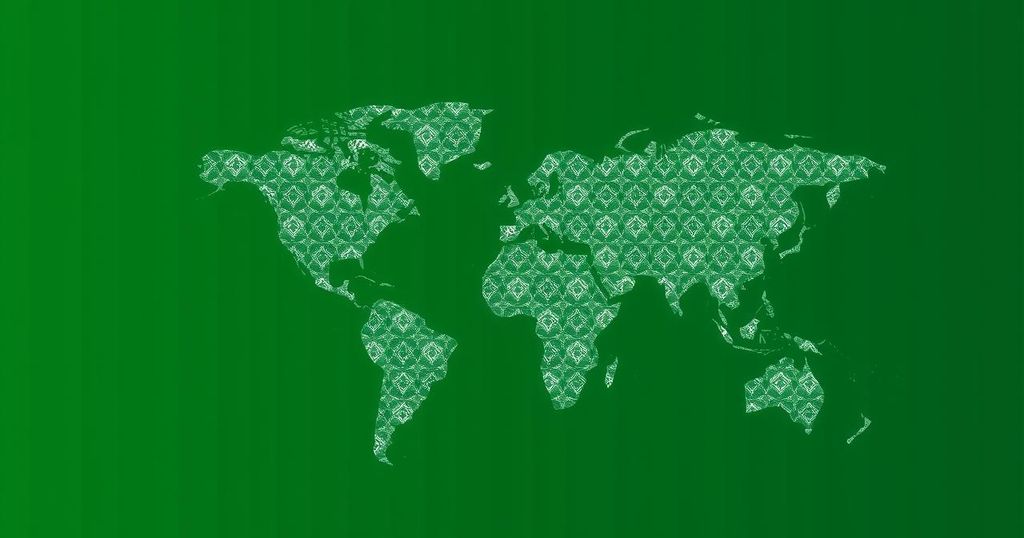Global news
350. ORG, ANDREAS SIEBER, ASIA, AZERBAIJAN, BAKU, DISPATCH, EUROPE/ASIA, EYE, FOREIGN POLICY, GREENPEACE MENA, HAN, HANEN KESKES, INTERNATIONAL RELATIONS, ISRAEL, JERUSALEM, KE, MEE, MIDDLE EAST, NORTH AMERICA, PALESTINE, SANCTIONS, SAUDI ARABIA, SIEBER, TURKEY, UNITED STATES
Fatima Khan
0 Comments
Saudi Arabia’s Resistance at COP29: Blocking Progress on Fossil Fuel Transition
As COP29 concludes, Saudi Arabia is reportedly working to block efforts to renew commitments towards transitioning away from fossil fuels. Despite previously endorsing COP28’s pledge, Saudi delegates have obstructed discussions on critical aspects of climate finance and mitigation strategies, raising serious concerns among environmental groups and other nations.
As the 29th Conference of the Parties (COP29) nears its conclusion, negotiations focused on climate action have become increasingly contentious, particularly due to Saudi Arabia’s actions. Reports indicate that Saudi delegates are systematically attempting to undermine the renewal of last year’s pivotal commitment aimed at transitioning away from fossil fuels. Even though the kingdom previously endorsed COP28’s directive regarding this transition, its current tactics at the Baku conference have raised concerns among negotiators about their commitment to international climate obligations. COP28’s pledge emphasizes a transition aligned with the objectives of the 2015 Paris Agreement, wherein nations strive to limit the rise in global temperatures to below 1.5 degrees Celsius. Andreas Sieber, associate director of policy and campaigns at 350.org, noted that for Saudi Arabia, recognized as the foremost petrostate globally, this proposition poses a significant threat to its economic framework. Hanen Keskes from Greenpeace MENA remarked that Saudi Arabia appears to be obstructing the Mitigation Work Programme, the segment of talks specifically aimed at advancing the transition away from fossil fuels. As discussions progressed, Sieber observed a promising draft proposal advocating a shift towards renewable energy; however, it was swiftly rejected by Saudi representatives. They contended that the document reinterpreted the Paris Agreement, even though the overarching structure of the mitigation programme was clarified as non-punitive. This denial underscores Saudi Arabia’s apparent reluctance to engage in meaningful dialogue concerning the potential alterations to their fossil fuel-dependent economic model. In addition to Saudi Arabia’s stall tactics, multiple other factors are complicating the negotiations. Keskes reported that several delegations invoked procedural rules to delay critical discussions about mitigation targets, asserting that these targets could not be established without corresponding financial commitments. The issue of climate finance has emerged as a significant point of contention, with wealthy nations refraining from suggesting specific amounts to be discussed, while developing nations, including Saudi Arabia, proposed annual targets ranging from $1 trillion to $1.3 trillion. Negotiations regarding climate finance, which entails funds from developed nations meant to assist developing countries in addressing climate change, revealed profound rifts in perspectives. Keskes emphasized the necessity of these negotiations to be able to unlock effective mitigation strategies, as developing countries cannot feasibly implement their nationally determined contributions without assurances of funding from wealthier nations. Saudi Arabia, alongside other developing countries, is advocating for public funding as part of the new collective quantified goal (NCQG) rather than relying on private investment.
The ongoing climate talks at COP29 reflect the complexities and challenges of global cooperation on climate change, especially as it pertains to fossil fuel reduction. The negotiations are pivotal in setting the stage for future climate action, particularly in light of previous agreements such as the 2015 Paris Agreement, which established benchmarks aimed at curbing global temperature increases. In this context, Saudi Arabia’s role as a leading oil producer has significant implications for its stance on fossil fuel transitions, often putting it at odds with the collective goals of climate-focused nations.
In conclusion, Saudi Arabia’s apparent resistance to commitments aimed at transitioning away from fossil fuels at COP29 highlights the underlying tensions in global climate negotiations. The kingdom’s actions, viewed as attempts to hinder progress, have raised alarm among environmental advocates and negotiators alike. As discussions continue, the need for cohesive dialogue on climate finance and actionable commitments remains critical to advancing meaningful transitions towards sustainability on a global scale.
Original Source: www.middleeasteye.net




Post Comment